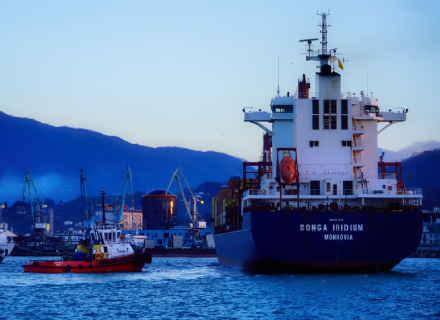Abu Dhabi-based AD Ports Group has announced the completion of the acquisition process of the Tbilisi Dry Port, which sees the infrastructure venture becoming the majority owner with a 60% stake.
The acquisition of the state-of-the-art, rail-linked, and custom-bonded intermodal logistics hub, in Georgia, scheduled to be operational in October 2024, further strengthens the AD Ports Group’s role in connecting Asia and Europe, via the Middle Trade Corridor (Trans-Caspian International Transport Route), linking manufacturing centres in Western Asia to the consumer markets of Eastern Europe, by efficiently leveraging a network of sea and dry ports across Kazakhstan, Azerbaijan, Armenia, Georgia and Turkey.
Abdulaziz Zayed AlShamsi, Regional CEO, AD Ports Group, told the media, “We are delighted with the completion of the Tbilisi Dry Port acquisition. The agreement highlights AD Ports Group’s unwavering commitment towards strengthening global supply chains, and we recognise the growing influence of the Middle Corridor on global trade. We are fully focused on successfully operating this important logistics hub, which enhances connectivity between Western Asia and Eastern Europe, and positions AD Ports Group at the forefront of global trade. This is the latest in a number of strategic international investments by AD Ports Group, in line with our wise leadership’s vision, to advance economic growth, job creation and mutual benefit.”
The new hub is strategically positioned between the Caspian Sea and Black Sea, at the heart of the Middle Corridor, and integrates facilities like a container freight station, warehouses and a car storage park. Serving as a crucial point of entry, exit, and regional transit, Tbilisi Dry Port accommodates manufacturers, shippers and consignees moving containers, vehicles and various goods for distribution and storage. The project has direct westward railway links to Turkey and Georgian ports of Poti and Batumi, further connecting European Black Sea ports in Bulgaria and Romania.
“The project will be completed in three phases. By the end of the initial phase, the handling capacity is expected to reach 96,500 TEUs, with 10,000 sqm of warehouse and a car storage yard. Upon the completion of phase three, the project will have a handling capacity of 286,000 TEU, 100,000 sqm of warehouse and a significantly expanded car storage yard. Further land plots have already been secured and can be developed as and when needed,” reported Emirates News Agency.
“The Middle Corridor is regarded as the shortest trade route between Asia and Europe, covering approximately 7,000 km and requiring a journey of 10 to 15 days. The existing Northern Corridor covers about 10,000 km overland, requiring 15 to 20 days, while the Southern Ocean Route spans approximately 20,000 km, requiring a sea voyage of 45-60 days. The Middle Corridor is expected to serve considerable growth in container volumes, which has the potential to reach 1.9 million TEUs by 2040,” it added further.
AD Ports Group made the strategic acquisition just after publishing its financial health-related report, which further showed the venture witnessing its q1 2024 revenues more than doubling to a whopping Dh8 billion, while net profit sailed in at Dh839 million, a 25% gain.
In the second quarter alone, revenue cleared Dh4.18 billion, while the profit tally was Dh439 million.
“Our strong second-quarter results provide further compelling proof of the success of AD Ports Group’s targeted, value-enhancing international expansion – which is being driven not only by acquisitions, but also by solid organic growth across our core businesses,” said Capt. Mohamed Juma Al Shamisi, Managing Director and Group CEO.
“We are on course for the profitable ‘internationalisation’ of the Group. And that ‘innovative thinking’ will ‘guide us through the current geopolitical headwinds,” the official added.
In all, Dh1.18 billion was spent by the venture as capex on organic growth in Q2 2024, and Dh2.45 billion for the first half of the year, which is in “line with the Group’s organic capital investment guidance of Dh12 billion to Dh15 billion for the next five years and its yearly guidance of Dh4 billion to Dh4.5 billion.”
The group’s handled general cargo volumes rose 46% year-on-year to 12.8 million tons in Q2 2024, largely “driven by the consolidation of Noatum Terminals (Spain) and KGTML in Karachi, Pakistan.”

